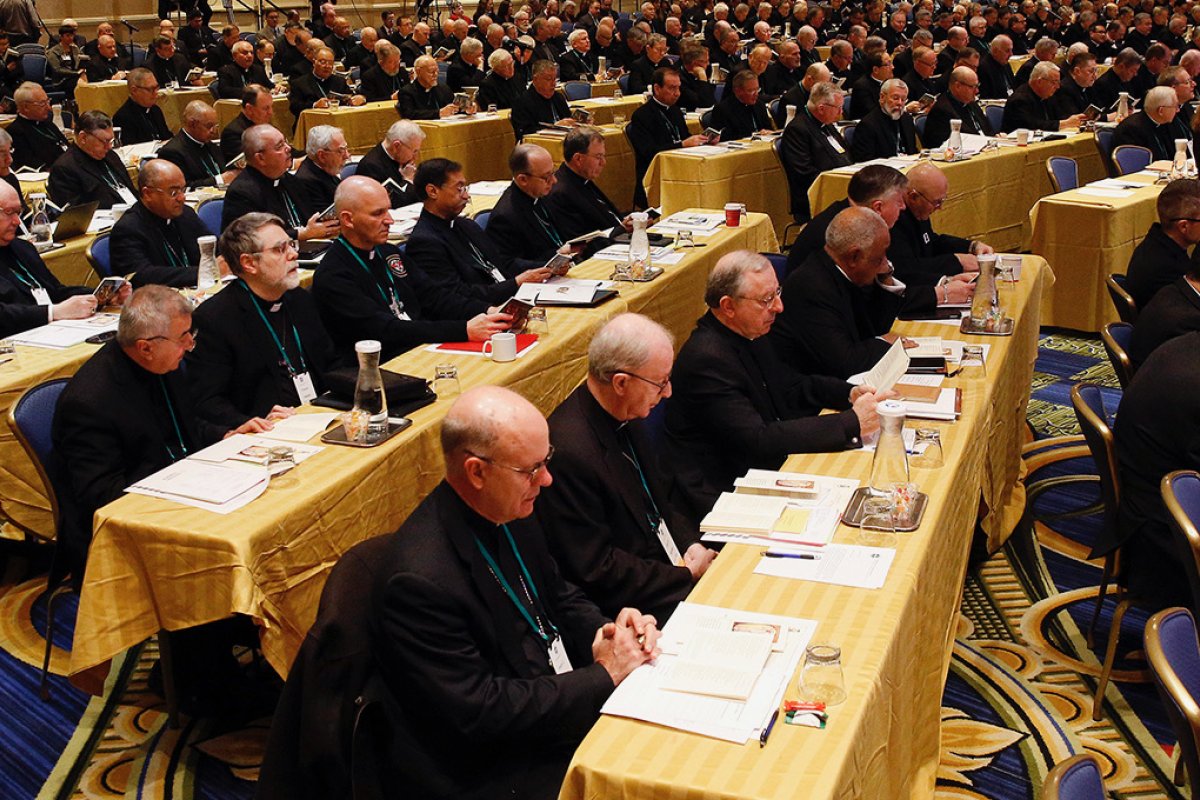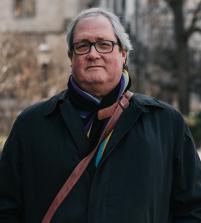
Assessing the Catholicity of a President
The political partisanship of the USCCB
One could be excused for assuming that there is an entity called the American Catholic Church, superintended by the United States Conference of Catholic Bishops (USCCB), and that its leadership is, with insistent but numerically modest dissent, affiliated with the Republican Party.
What would prompt such an observation is the controlling role that abortion continues to play in the American Church’s relation to American politicians, and their receptiveness to the readiness of Republicans to do the same. One needs to search long and hard to find direct criticisms of our last two Republican Presidents, despite actions of each that would plausibly give the bishops pause, viz. the waging of war in Iraq in one case and the rampant disregard for human dignity (of women, of immigrants and families, etc.) by the other. At the same time it is quite straightforward to locate instances of direct criticism of Democratic presidential candidate John Kerry and now President Biden—both of whom are Catholic—for their position on abortion: most prominently, the apparently de rigueur recourse to consideration of whether the dioceses in which they worship should withhold access to the Eucharist because of allegiance to their party’s platform. (By comparison, the Republican party’s affirmation in its platform of the free-market economy and its scant direct address to economic inequality appears not to have prompted any pause on the part of the bishops.)
This partisan behavior from avowedly non-partisan religious leaders had its most recent iteration in the calamitous month of January, when the leader of the USCCB published a letter on January 6 condemning the attack on the nation’s Capitol, absent reference to the inciting role of the forty-fifth President, and then proceeded on January 20 to publish a letter expressing profound concern about the new administration, focalizing on its advocacy of the right of a woman to have an abortion. Uncertainty about the agency of one Chief Executive is replaced with certainty about the agency of his successor. (Notably, Cardinals Cupich of Chicago and Tobin of Newark took exception to the letter.)
It should not be terribly surprising, then, that as of this writing there has been a lack of commentary from the USCCB regarding what the newly elected President has done in his first seven weeks in office. This includes a significant acceleration in the delivery of Coronavirus vaccines to American citizens: five times the number delivered during the previous administration, at a more rapid pace and with more equitable distribution. The persistent problem of a preferential option for the affluent and the privileged, which marked the previous administration (including the President himself), has been exchanged for a very different approach.
Louder still is the silence with which the USCCB has greeted the passage of the American Rescue Plan. The naïve observer could be excused for thinking, despite the bishops’ reservations about the President’s Catholicity, that this bill is deeply informed by Catholic social teaching. Its aim to achieve on a variety of levels a redistribution of wealth to the poor and the disadvantaged—its direct payments to families, its expansion of unemployment benefits, its lowering of health care costs, and its expansion of the child tax credit, which is widely forecast to alleviate child poverty at rates unknown in American history—all reflect in detail and depth the Church’s longstanding commitments to social equity, to the dignity of the poor, and to the importance of a social order in which all persons have access to social goods.
Whatever one’s pragmatic assessment of the American Rescue Act, it is indisputably reflective of what Joseph Cardinal Bernardin once articulated as “the seamless garment of life.” But it would appear that Bernardin’s formulation is no longer to be the gold standard for at least the current American Catholic Church’s social teaching, which has reduced social teaching to the litmus test of abortion.
If, despite its broad consonance with Roman Catholic social teaching, the American Catholic Church in the person of the USCCB cannot endorse this legislation, their silence creates a void which is filled by Republicans who to a person did not support the Act and many of whom are already acting to subvert it.
These connections of the American Bishops with the Republican party—explicit and implicit—belie the dual claim of Archbishop Gomez and the USCCB that the bishops are non-partisan and first and foremost Catholics. However one construes their theological position, its practical import is unmistakably supportive of the Republican party. (Cardinal Dolan’s appearance at the Republican National Convention straightforwardly underscores this point.)
One can encapsulate the pretzel-like practice of the USCCB in the form of a dilemma: now that President Biden has signed into law the American Rescue Act, should he in fact be pronounced worthy of receiving the Eucharist? However in accord with their practice, that is a question the USCCB will almost certainly never entertain.
Photo: The USCCB's 2018 meeting in Baltimore (AP | Patrick Semansky)
Sightings is edited by Daniel Owings, a PhD Candidate in Theology at the Divinity School. Sign up here to receive Sightings via email. You can also follow us on Facebook and Twitter. The views and opinions expressed in this article are those of the author and do not necessarily reflect the position of the Marty Center or its editor.


